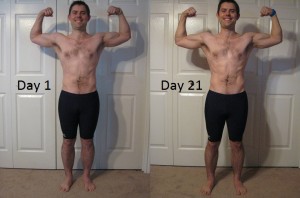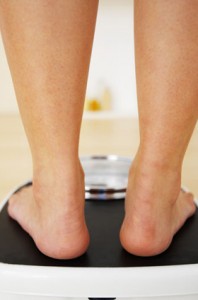By Linda Wasmer Andrews May 25, 2012
 That bacon double cheeseburger may be as bad for your brain as it is for your heart. A recent study in Annals of Neurology found a link between heart-unhealthy saturated fat and worsening mental test scores in older women over time. In fact, a diet high in saturated fat seemed to speed up mental decline by five to six years, compared to a diet low in this kind of fat.
That bacon double cheeseburger may be as bad for your brain as it is for your heart. A recent study in Annals of Neurology found a link between heart-unhealthy saturated fat and worsening mental test scores in older women over time. In fact, a diet high in saturated fat seemed to speed up mental decline by five to six years, compared to a diet low in this kind of fat.
The study was led by Olivia Okereke, MD, an assistant professor of psychiatry and epidemiology at Harvard. It was based on data from more than 6,000 women over age 65.
Harmful Saturated Fat
Researchers identified a group of women who had the greatest mental decline during the four-year study period. Women with the highest intake of saturated fat were 60 to 70 percent more likely to be in this group, compared to those with the lowest saturated fat intake. Foods laden with saturated fat include fatty beef and pork, poultry with skin, butter, whole milk, and full-fat cheese.
Scientists are still studying how dietary fat affects brain function. But it’s known that a diet high in saturated fat can contribute to heart and blood vessel disease. And that, in turn, can restrict the brain’s blood supply, making it harder for brain cells to get all the oxygen and nutrients they need.
Helpful Monounsaturated Fat
Heart health guidelines recommend replacing saturated fat with moderate amounts of a good-for-you alternative, such as monounsaturated fat—the type found in olive oil. Monounsaturated fat helps fight high cholesterol and lowers the risk for heart disease. Based on the new study, shifting your diet in this direction could be smart for your brain as well.
Women in the study with the highest intake of monounsaturated fat were 40 to 50 percent less likely to be in the greatest mental decline group, compared to those with the lowest monounsaturated fat intake. In addition to olive oil, foods rich in this type of fat include canola oil, peanut oil, sunflower oil, and sesame oil. Other sources include avocados, peanut butter, and many nuts and seeds.
Hearts and Minds
As people get older, many notice that they’ve become a little more forgetful or that it takes a bit longer to remember names. But for some, the changes grow more pronounced. When thinking ability and memory slip enough to be an increasing concern, but not enough to limit day-to-day activities, a person may have mild cognitive impairment. This condition can be worrisome in itself. But the biggest issue is that it can be an intermediate step between normal aging and Alzheimer’s disease.
There’s not enough evidence yet to say conclusively that limiting saturated fat helps prevent or delay mild cognitive impairment. But research suggests that it might. And what have you got to lose? Replacing saturated fat with a healthier fat helps protect your heart. If it helps keep your brain younger, too, that’s a two-for-one deal you don’t want to pass up.










